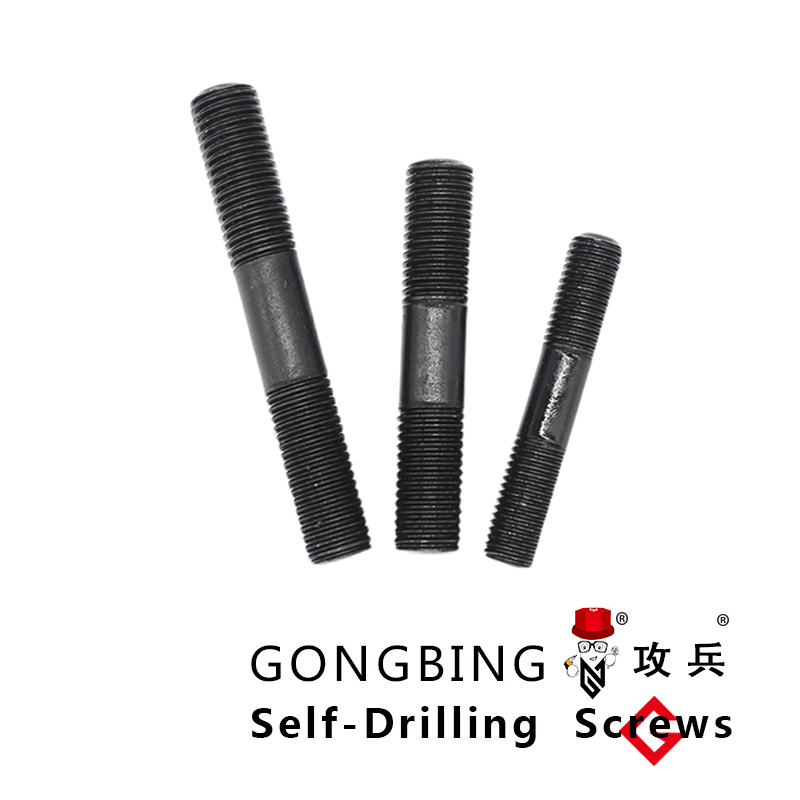M6 Resin Anchors for Secure and Durable Fixings in Construction Projects
Understanding M6 Resin Anchors A Comprehensive Guide
When it comes to fastening solutions, the construction and engineering industries often rely on a variety of anchor systems to ensure structural integrity and safety. Among these, M6 resin anchors have gained popularity due to their unique properties and versatility. This article explores the features, applications, installation methods, and advantages of M6 resin anchors.
What Are M6 Resin Anchors?
M6 resin anchors are a type of chemical anchor designed to provide strong and durable fastening in various substrates, including concrete, brick, and masonry. The M6 designation refers to the metric thread size of the anchor, which is 6 mm in diameter. Typically made from high-quality steel, these anchors are designed to be used in conjunction with a resin adhesive, which enhances the bond strength and load-bearing capabilities.
Features of M6 Resin Anchors
One of the standout features of M6 resin anchors is their ability to deliver exceptional performance in a range of conditions. The resin used can be polyester, vinylester, or epoxy-based, each offering varying strengths and resistance to environmental factors, such as moisture and chemicals. These anchors are designed to expand within the substrate as the resin cures, creating a tight and secure fit. Additionally, M6 resin anchors exhibit minimal expansion during the curing process, reducing the risk of cracking or damaging the surrounding material.
Applications
M6 resin anchors find use in numerous applications, making them a go-to solution for many construction projects. Their versatility allows them to be used in
1. Structural Engineering Ideal for securing steel beams, columns, and other structural elements. 2. Facade Installation Commonly used to anchor cladding, signage, and other architectural features. 3. Electrical and Mechanical Installations Perfect for fixing equipment and fixtures in commercial and industrial settings. 4. Retrofitting and Renovations Offers a reliable option for attaching new installations to existing structures.
Installation Process
m6 resin anchors

Installing M6 resin anchors is a straightforward process, but it requires careful execution to ensure effectiveness. Here’s a simple step-by-step guide
1. Drilling the Hole Use a rotary hammer to drill a hole in the substrate where the anchor will be placed. The diameter and depth of the hole must align with the manufacturer's specifications.
2. Cleaning the Hole It is crucial to clean the hole of any debris and dust. This can be done using a wire brush and compressed air to ensure optimal adhesion of the resin.
3. Injecting the Resin Using a suitable application gun, inject the resin into the hole. Fill it to about two-thirds full to allow space for the anchor.
4. Inserting the Anchor Insert the M6 anchor bolt into the hole and twist it slightly to ensure it is fully surrounded by the resin.
5. Curing Time Allow the resin to cure as per the manufacturer's guidelines. This can vary depending on the resin type and environmental conditions.
Advantages of M6 Resin Anchors
M6 resin anchors offer several advantages over traditional mechanical anchors. These include
- High Load Capacity Due to the chemical bonding process, resin anchors often have a higher load capacity than mechanical anchors, making them suitable for heavy-duty applications. - Versatility They can be used in various materials, including cracked and uncracked concrete. - Corrosion Resistance Many M6 resin anchors are designed to resist rust and corrosion, extending their lifespan, especially in outdoor environments. - Reduced Risk of Damage The minimal expansion of resin during curing prevents damage to surrounding materials, making them ideal for sensitive applications.
In conclusion, M6 resin anchors are a versatile and effective solution for a variety of fastening needs in construction and engineering. Their unique characteristics and advantages make them a preferred choice for many professionals seeking reliable performance in challenging conditions. Whether for new builds or renovations, understanding M6 resin anchors will help ensure safe and robust installations.
-
Weatherproof Plastic Expansion Anchors for OutdoorNewsJun.06,2025
-
Sustainability in the Supply Chain: Eco-Friendly TEK Screws ProductionNewsJun.06,2025
-
Load-Bearing Capacity of External Insulation FixingsNewsJun.06,2025
-
Double Head Bolts: Enhancing Efficiency in Industrial MachineryNewsJun.06,2025
-
Corrosion Resistance in Chipboard Screws: Coatings for Wholesale DurabilityNewsJun.06,2025
-
Butterfly Toggle Bolts : Enhancing Structural ResilienceNewsJun.06,2025
